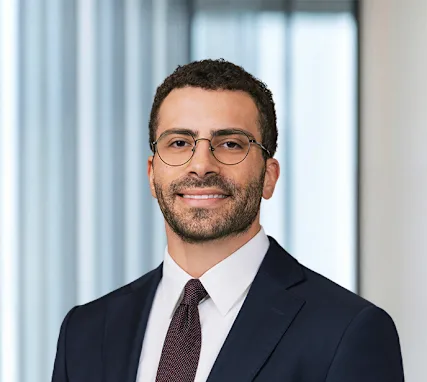Authors
Specifically, the Eleventh Circuit affirmed the district court’s ruling to vacate the panel’s decision denying lost profit damages for plaintiff NuVasive. After years of litigation, the court compelled arbitration pursuant to the parties’ agreement to resolve the primary liability issue in the greater lawsuit. After the panel issued the award in March, the court allowed limited discovery to resolve some of the remaining claims. Approximately eight months later, defendant Absolute Medical produced text messages showing that its principal owner, Greg Soufleris, had coached a witness who was testifying before the arbitration panel. The district court vacated the judgment even though NuVasive had filed its motion to vacate after the Federal Arbitration Act’s (FAA’s) statutory three-month deadline.
The underlying arbitration involved a dispute between NuVasive, a medical device manufacturer, and Absolute Medical, a sales company that employed independent-contractor sales representatives to sell NuVasive products. Prior to the termination of their exclusive distribution agreement, Soufleris dissolved the company and formed Absolute Medical Systems, LLC. Absolute Medical Systems in turn employed Dave Hawley and Ryan Miller, who shortly began selling products for one of NuVasive’s competitors.
When Absolute Medical finally produced evidence of Soufleris’ misconduct, NuVasive quickly filed a motion to vacate the award as fraudulently procured under section 10(a)(1) of the FAA. In response, Absolute Medical argued that NuVasive’s motion to vacate should be denied because it was filed more than three months after the award was issued, outside of the time allowed by section 12 of the FAA. Crucially, Absolute Medical also argued that equitable tolling was not available in the FAA context.
The district court adopted the reasoning in the Ninth Circuit, which has found the FAA compatible with equitable tolling. The district court further relied on the Supreme Court’s recent decision in Boechler, P.C. v. Comm’r of Internal Revenue, 142 S.Ct. 1493 (2022), which offered relevant guidance about how to determine whether a statute’s deadlines are jurisdictional, such that a court or agency would be precluded from reviewing the late filings.
Ultimately, the Eleventh Circuit held that the three-month window in section 12 of the FAA may be equitably tolled under a two-prong approach. First, tolling is appropriate when “extraordinary circumstances” warrant untimely filing. Second, the movant must act with reasonable due diligence in pursuing its motion to vacate.
Absolute Medical’s intentional failure to produce discovery until after the deadline for NuVasive to pursue vacatur, coupled with Soufleris’ misconduct, created “the sort of ‘extraordinary circumstances’ contemplated by the doctrine of equitable tolling.” And, since NuVasive filed its motion to vacate shortly after the first indication of fraud, it fulfilled the “diligence” prong as well.
By applying equitable tolling to the deadline for vacatur, the Eleventh Circuit has increased courts’ ability to modify arbitral judgments more generally. Indeed, depending on how broadly it is applied, the application of equitable doctrine to the FAA could allow courts to modify or vacate awards based upon petitions timed well after the three-month limit. It will be interesting to see how the Eleventh Circuit addresses these petitions in future cases.
Client Alert 2023-146

